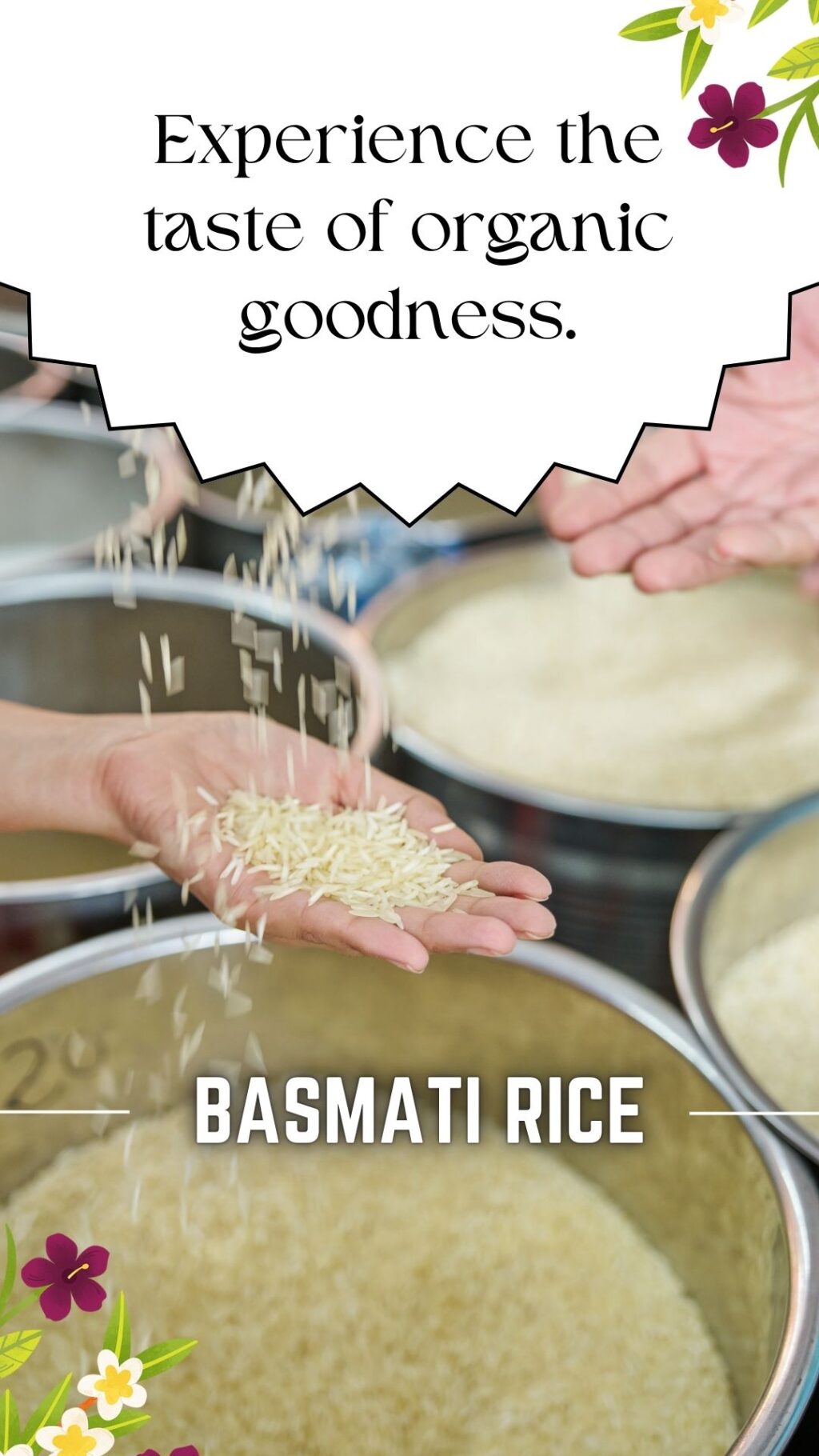
Introduction to Rice Exporters in India
India stands as one of the largest rice producers and exporters in the world. From traditional Basmati rice to non-Basmati varieties, Indian rice is in demand across continents due to its quality, aroma, and diverse applications in global cuisines. The strength of rice exporters in India lies in their access to fertile agricultural regions, modern processing infrastructure, and deep-rooted expertise in the grain trade.
Indian rice exporters supply to markets like the Middle East, Africa, Southeast Asia, Europe, and North America. They cater to global demand with strict quality control, consistent packaging, and compliance with international food safety standards.
Types of Rice Offered by Indian Exporters
Rice exporters in India specialize in various categories to meet the taste preferences and culinary needs of different countries.
Basmati Rice
- Known for its long grains and natural aroma.
- Popular in Middle Eastern and European cuisines.
- Exported in traditional and modern packaging formats.
- Comes in varieties like 1121, Pusa, Traditional Basmati, and Sugandha.
Non-Basmati Rice
- Includes varieties like Sona Masoori, IR64, Swarna, and Parboiled rice.
- Widely exported to African and Southeast Asian countries.
- Known for affordability and bulk availability.
Organic Rice
- Grown without synthetic pesticides or chemical fertilizers.
- Certified by global organic bodies (like USDA, EU Organic).
- Preferred by health-conscious consumers in the U.S., Europe, and Australia.
Parboiled Rice
- Undergoes a partial boiling process before milling.
- Retains more nutrients than white rice.
- Known for firm texture and longer shelf life.
Why Rice Exporters in India Lead the Global Market
Several factors contribute to India’s dominance in global rice exports.
Agricultural Strength
- India’s vast rice-growing regions in Punjab, Haryana, Uttar Pradesh, Andhra Pradesh, and West Bengal ensure high-volume output.
- Diverse soil types and favorable climate boost year-round production.
Processing Infrastructure
- Modern milling units ensure low breakage and consistent grain size.
- Sortex machines, silos, and hygienic packaging units meet international standards.
Competitive Pricing
- Exporters offer cost-effective solutions without compromising on quality.
- They provide packaging customization and bulk discounts for large-volume orders.
Certifications and Compliance
- Indian exporters meet international norms like ISO, HACCP, BRC, FSSAI, and SGS.
- Many firms offer fumigation, phytosanitary certification, and pre-shipment inspection for smoother international logistics.
Leading Markets for Indian Rice Exporters
Rice exporters in India cater to a broad international market, each with its own demand preferences.
Middle East
- High demand for Basmati rice due to its use in traditional dishes like biryani and kabsa.
- Long-term trade relationships with UAE, Saudi Arabia, Qatar, and Kuwait.
Africa
- A major consumer of non-Basmati rice varieties.
- Indian rice is exported in large volumes to Nigeria, Ghana, Benin, and Senegal.
Europe
- Growing demand for organic and specialty rice.
- Countries like the UK, Germany, and the Netherlands import both Basmati and organic varieties.
North America
- Consumers prefer clean-label and packaged Basmati rice.
- Demand from Indian, Pakistani, Middle Eastern, and Southeast Asian communities in the U.S. and Canada.
Key Indian Ports for Rice Export
Rice exporters in India operate through multiple sea ports for global distribution:
- Mundra Port (Gujarat) – Major hub for Basmati rice export.
- Kandla Port (Gujarat) – Handles bulk shipments for Africa and Gulf nations.
- Nhava Sheva Port (Maharashtra) – Ideal for containerized exports.
- Kolkata Port (West Bengal) – Main route for East Indian rice varieties to Southeast Asia.
- Chennai Port (Tamil Nadu) – Serves exporters from South India, especially for Sona Masoori and IR64.
Private Label Services by Indian Rice Exporters
Rice exporters in India also provide private label packaging for international clients. These services include:
- Customized brand names, logos, and packaging materials.
- Multi-language labeling based on the destination market.
- Vacuum packing, PP woven bags, jute bags, or BOPP bags ranging from 1kg to 50kg.
- On-demand barcoding, QR codes, and nutritional info printing.
Private labeling helps foreign distributors build their own brand presence while sourcing high-quality rice from India.
Role of Government and Trade Bodies
The Indian government and trade associations play an active role in supporting rice exporters:
- APEDA (Agricultural and Processed Food Products Export Development Authority) provides certification, marketing assistance, and trade fairs.
- Ministry of Commerce offers export incentives under schemes like MEIS and RoDTEP.
- Export Inspection Council (EIC) ensures quality control and pre-shipment inspection.
- Trade shows such as Gulfood, SIAL, and Anuga allow exporters to network and secure long-term contracts.
These institutions enable Indian rice exporters to maintain quality and expand their global presence.
Quality Assurance and Packaging Standards
Quality is a non-negotiable factor for rice exporters in India. To ensure consistency and hygiene, exporters follow strict practices:
- Moisture content is maintained between 12% and 14%.
- Grains are sorted using color sorting machines to remove discolored or broken rice.
- Packaging is done in food-grade materials that ensure long shelf life.
- Quality is monitored at every stage from milling to container stuffing.
International clients often request SGS or Bureau Veritas inspection before shipment, which Indian exporters accommodate to build trust and transparency.
Logistics and Supply Chain Efficiency
Logistics is a critical pillar of rice export operations. Indian exporters have optimized their supply chains for timely delivery:
- Efficient inland transport using railways and road networks.
- Container loading in ICDs and prompt shipment from major ports.
- Tie-ups with global freight forwarders for better rate negotiation.
- Real-time tracking and documentation to ensure timely clearance and delivery.
This supply chain discipline ensures that rice shipments reach their destination in optimal condition and on time.
Challenges Faced by Rice Exporters in India
Despite their success, rice exporters in India face several industry challenges:
- Price fluctuations due to monsoon dependency and global market dynamics.
- Container shortages and rising freight costs.
- Regulatory changes in importing countries.
- Quality issues due to inconsistent practices in unorganized sectors.
However, reputed exporters mitigate these risks with procurement contracts, warehousing, and risk management policies.
Choosing the Right Rice Exporter in India
Buyers should look for certain key factors when selecting reliable rice exporters in India:
- Years of export experience and market reputation.
- Certifications like ISO, HACCP, and organic accreditations.
- In-house quality control lab and processing unit.
- Transparent pricing and consistent communication.
- Ability to handle small and bulk orders with equal professionalism.
Reliable exporters often offer samples, certifications, and client references to help buyers assess product quality and reliability.
Trends Shaping the Future of Indian Rice Exports
The global rice trade is evolving, and rice exporters in India are adapting quickly:
- Growing demand for ready-to-cook and microwaveable rice.
- Rise in online bulk buying and white-label retailing.
- Increasing focus on organic and sustainable farming.
- Expansion of rice-based value-added products such as rice bran oil and rice flour.
Digital transformation, traceability tools, and eco-friendly packaging are further enhancing the capabilities of Indian exporters to meet the next generation of international buyers.
Conclusion
Rice exporters in India have built a strong global reputation through quality, consistency, and adaptability. From traditional Basmati to modern organic offerings, they meet the world’s diverse rice needs with a focus on customer satisfaction and food safety.
For importers and distributors seeking trusted sourcing partners, rice exporters in India offer both experience and excellence. With competitive pricing, international certifications, and robust logistics, they are well-positioned to lead the future of global rice trade.




